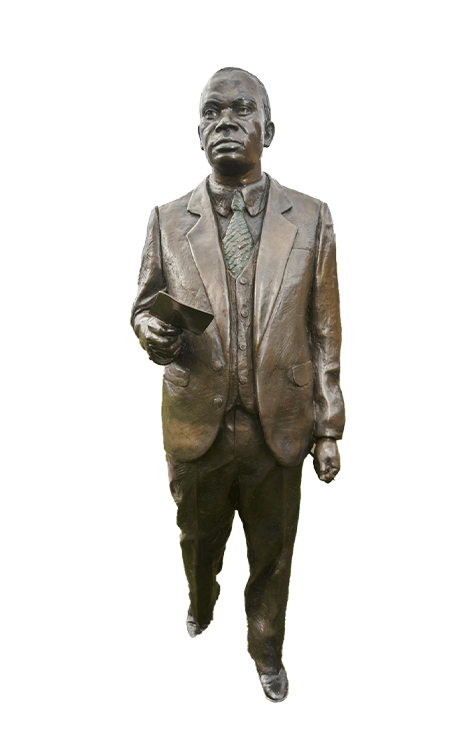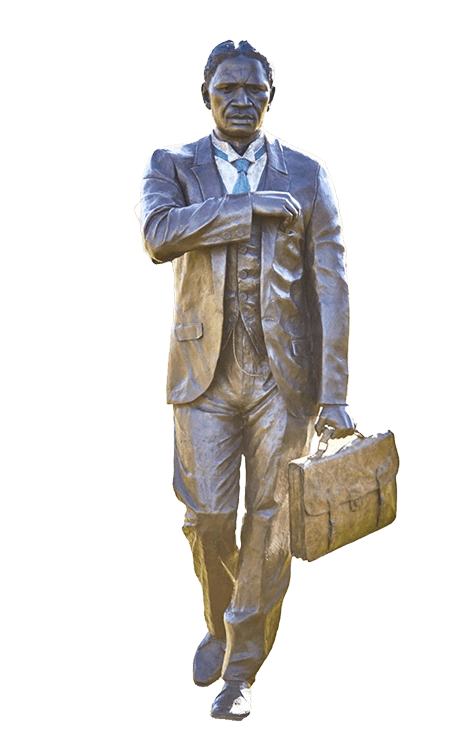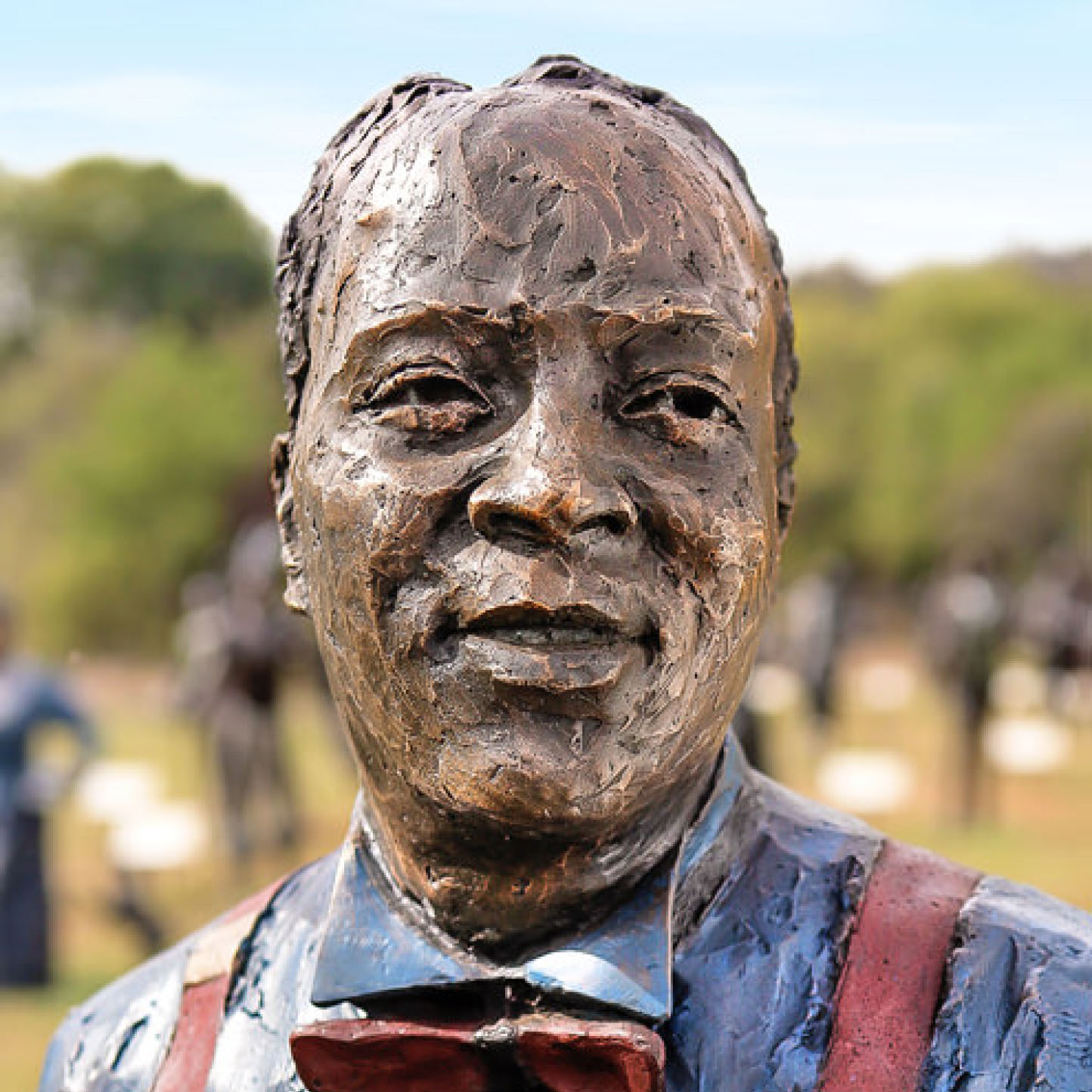
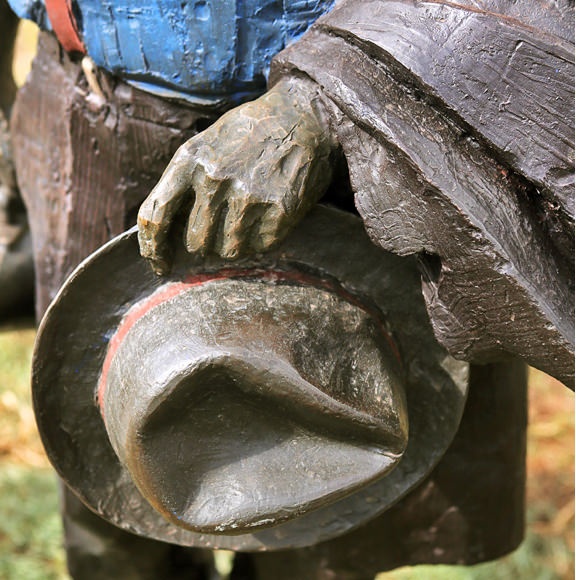
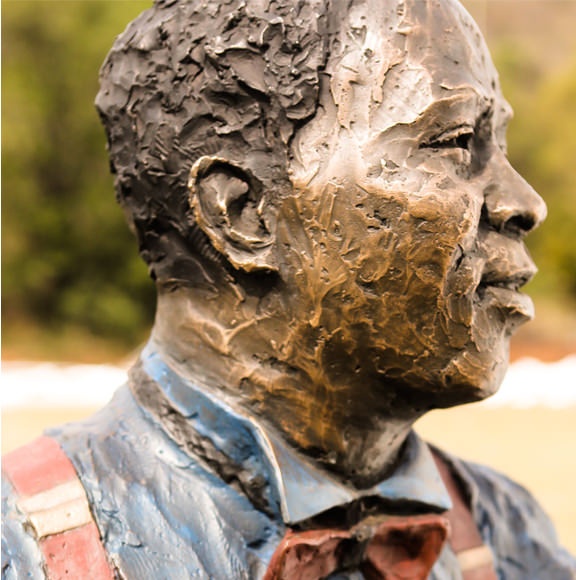
"I am the apostle. I speak to you in this foreign language, English. But I believe we all have a common cause. I have not and I will not transgress any laws, I speak not to inflame the law but I am devoted to creating a black industrial alliance, and I am here collecting black members for the ICU all over South Africa."
- Clements Kadalie
Clements Kadalie
1896 – 1951
Founder and National Secretary of the Industrial Commercial Workers Union
Clements Kadalie was born in 1896 to a paramount chief of the Atongas in Malawi. He graduated as a teacher from the Livingstonia Missionary Institute in 1912 and worked at clerical positions in Mozambique and Southern Rhodesia (present-day Zimbabwe) before arriving in Cape Town in 1918 to join his brother who was already employed there.
A chance meeting and friendship with a socialist candidate for parliament, A. F. Batty, led Kadalie to the idea of launching a trade union, and in 1919 he founded the Industrial Commercial Workers Union (ICU) with an initial membership of 24, most of whom were Coloured dock workers.
Kadalie became South Africa's first black national trade union leader when he was elected the ICU's National Secretary in 1921.
He achieved prominence in the emerging South African black trade union movement with only limited experience as a worker and even less as a resident of South Africa. He headed the ICU from its inception until his resignation as national secretary in 1929.
The ICU developed into the biggest African mass movement seen in South Africa, with branches in the main centres of the country boasting over 100,000 members by 1927. Its success, however, was short-lived. By the late 1920s the ICU proved unable to deliver on its many promises to help raise wages and enhance the general standard of living of its members.
Disagreements amongst national and local leaders on the goals of the organization and the methods it should employ led first to the expulsion of Communists then to the split of the organization into several rival factions in 1929. The meteoric rise of Kadalie and the ICU had signalled the first challenge of mass organized labour to the established economic and political order, but by 1930 the ICU had virtually ceased to exist.
Though Kadalie spoke none of the indigenous African languages, he won over leaders and workers alike. Many considered him their liberator. A persuasive showman with a great appreciation for the dramatic, he was a controversial, eloquent orator, often described as flamboyant. He died in East London in 1951, after returning from a visit to his home village in Nkhata Bay, Malawi.
